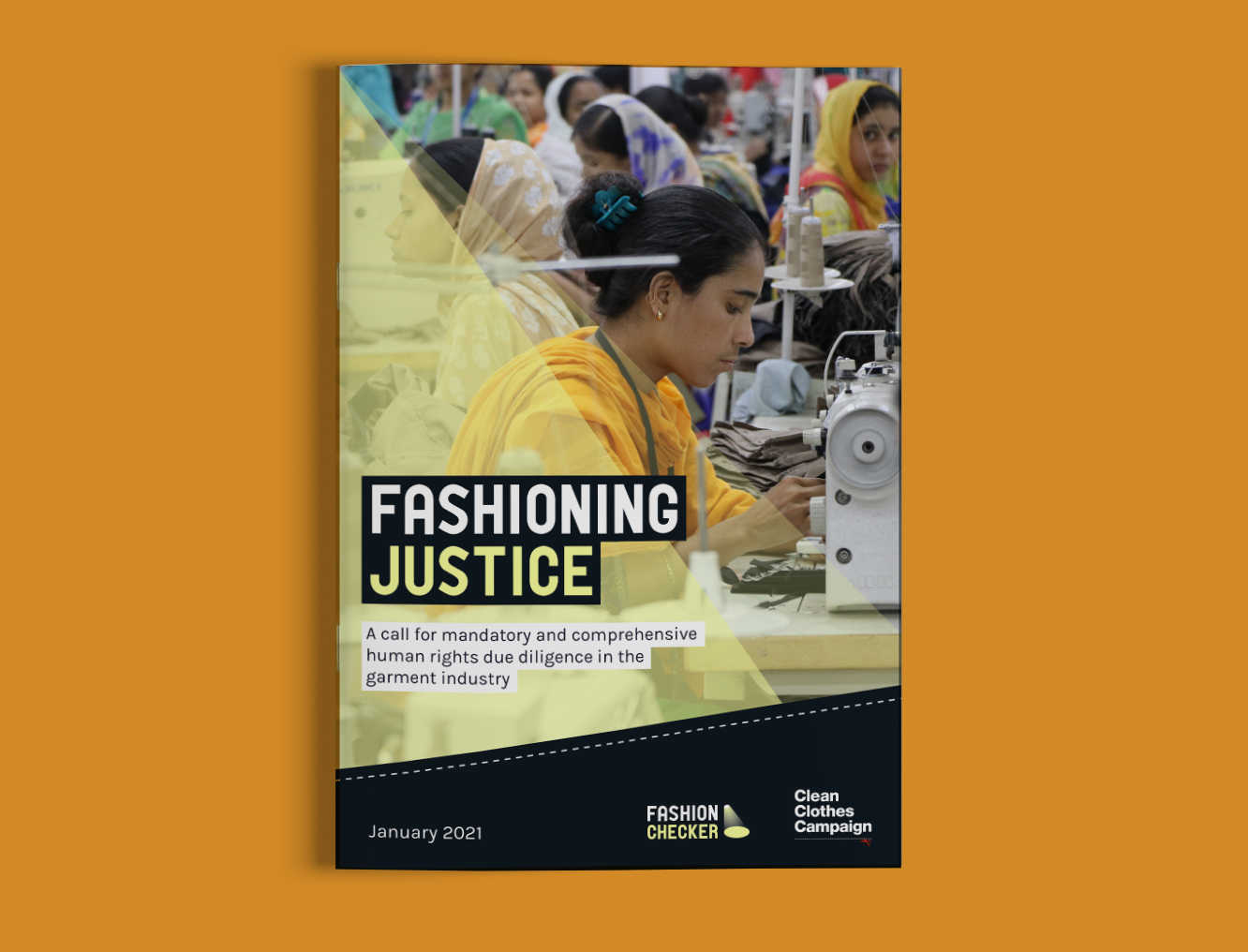
Fashioning justice: Clean Clothes Campaign’s latest publication calls for mandatory and comprehensive human rights due diligence
In the just-released publication ‘Fashioning justice’ Clean Clothes Campaign (CCC) shows that non-enforceable initiatives and voluntary commitments by garment brands have failed to protect workers’ human rights and deliver justice. CCC therefore puts forward concrete proposals for binding rules aimed at ensuring responsible business conduct. The recommendations are supported with an overview of the policy context and of the current realities in the garment industry.
‘Fashioning justice’ puts the spotlight on: brands’ unfair purchasing practices at the roots of human rights violations; brands’ reliance on the flawed social auditing system; the lack of occupational safety; gender inequality; poverty wages even with overtime work; persistent attacks freedom of association; the acute lack of value chain transparency; and lack of effective remedy in cases of human rights violations which take place on a mass scale.
What we see
By preferring to produce in low-income countries that lack or under-fund social protection systems and where human rights are often flouted, fashion brands, retailers and e-tailers have long been deriving profits from a system of poverty pay and exploitation of the most vulnerable people whose plight has been further exacerbated by the Covid-19 pandemic.
Indeed, at the time when we are approaching 10 years since the adoption of United Nations Guiding Principles on Business and Human Rights (UNGPs) and the European Union has set in motion a legislative process geared toward mandatory human rights due diligence (HRDD), fashion brands, retailers and e-tailers have been largely ignoring responsible business conduct principles and the impact the Covid-19 pandemic has had on garment workers.
“Garment brands are heavily implicated in the pervasive human rights violations in their value chains that we expose in this paper. As one example, they abuse their market power to push for ever lower prices so that garment factories operate on razor-thin margins and cut corners on workers’ rights. Meanwhile brands pay out millions to their shareholders. Brands’ ruthless profit-maximising practices also make governments reluctant to introduce and enforce proper labour protections, as those inevitably increase production costs,” said Neva Nahtigal of Clean Clothes Campaign International Office.
What we want
In ‘Fashioning justice’ CCC calls for binding rules, so that responsible business conduct is no longer just a matter of choice of a few businesses that are then disadvantaged through market competition with the laggards.
“Above all, we appeal to policy-makers to adopt a comprehensive approach. Human rights due diligence requirements must cover entire value chains, including semi-formal and informal working schemes as well as unofficial subcontracting and home-based work. Furthermore, we are calling for clear enforcement mechanisms, for adequate sanctions for shortcomings and for civil and criminal liability provisions. Workers whose rights are violated must be granted access to effective remedy. We are also calling for mandatory transparency and a range of other complementary measures,” said Muriel Treibich of Clean Clothes Campaign International Office.
‘Fashioning justice’ also highlights that a move towards mandatory HRDD must not stop at EU institutions. CCC continues to call for a binding UN treaty that sets a regulatory base for decent work along the entire global value chain and that holds companies accountable for respecting human and labour rights around the world.
The paper is published within the ‘Filling the gap’ project that is co-funded by the European Commission (DG DEVCO). It aims to fill the gap between poverty wages and living wages, between male and female pay, and to fill the gap in data at the bottom of the supply chain. The 3-year project also includes the Fashion Checker website that puts a spotlight on the discrepancy between what brands say they do and the reality for workers in their supply chains.
See https://cleanclothes.org/campaigns/filling-the-gap and https://fashionchecker.org/